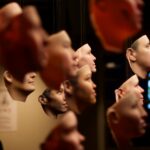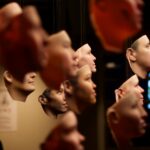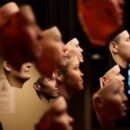I have been wrong many times. That’s OK

An admission: I have been wrong many times – right here on this page.
That should not be news to anyone, but somehow it is. We are, all of us, prone to error. We can not only be wrong, but egregiously, terribly wrong. To err is human, as Alexander Pope pointed out aeons ago (and to forgive, divine).
I have been writing this column for quite a while, and when I am sometimes looking through the archive I pull up short. Well, that was quite wrong, I think – way off the mark.
I have praised people who turned out not to warrant it. I have highlighted organizations that later went on to come unstuck. I have offered opinions that years after seem naive and ill-considered. I wish I could erase those writings, but that would be the wrong thing to do. It is better that they remain untouched, as monuments to my propensity to err.
The mistakes occurred not only on the page, but in the living of life. I have made errors of judgement; I have misread situations and people; I have been less kind and generous than I should have been. And so have you. We all cringe when we look back on our pasts. There are moments we wish we could redo; actions we would want desperately to undo.
We should not.
Consider my translation of some poetry by Naseem Ajmeri:
’Tis only when I finally reached my destination
and turned to look back
that the realisation came to me;
The path that brought me here
was revealed not by the road signs
but by all the turns that were wrong.
The mistakes we make are not aberrations or embarrassments to be erased; they are moments of extreme learning. We learn far more when we are wrong than when we are right. To be proved right, after all, is mere validation of our existing beliefs. It is confirmation and vindication. It leads to smugness.
To be caught being wrong, however, is to be pulled up short. It is a slap in the face, a setback that should force a rethink. It is a signal that certain beliefs, no matter how closely held, may be false. It should be a spur to change, to re-examine, to apologize, to ponder and reflect.
To pretend we have never made mistakes is to stop learning and growing. The mistakes are the path to wisdom. Our foolishnesses make us wise, eventually. 1 Corinthians 3:18 puts it best:
Let no man deceive himself. If any man among you seemeth to be wise in this world, let him become a fool, that he may be wise.
The mistakes of our lives do not signpost our follies; they record our growth and learning. They are there to show that as travellers we did not always take the easiest paths; that we were explorers who took risks; that we were willing to try new paths, even if they led nowhere.
Indeed, to be right too often is itself a problem. Consider this excellent advice contained in Margaret Heffernan’s thought-provoking book, Uncharted. She talked to Daryl Plummer, a forecaster at Gartner. His job is to make forecasts and predictions. His team makes errors and gets things wrong. And that’s OK. “…if you’re not wrong, you’re not trying hard enough. Sixty per cent accuracy is optimal. If you are right more than that, you’re diluting what you’re predicting. Nobody here is hired because they’re psychic; they’re hired to generate insights that are useful – even if they turn out to be wrong. They’re useful because they get you thinking.”
That’s a show-stopping thought. It’s not OK to be wrong most of the time; but it’s also not OK to be right all the time. Getting things too right too often just reveals a timidity, a reluctance to take chances. What matters is not the errors or stumbles themselves, but what we do in response to them.
What does the always-foolish-but-increasingly-wise person do in response? Stop. Rethink. Are my assumptions wrong? Is there a flaw in my reasoning? Or even: was I just being a dumb jerk here? Can I get better now?
Sadly, in many cases our egos prevent us from admitting or acknowledging any errors, let alone owning up to them. It feels bad to be wrong, and we don’t want to feel bad. Therefore, we never admit fault, we never change course. Many lives unravel, and many organizations tumble, for precisely that reason.
Our lives are uncharted and uncertain. We, the humans trying to navigate them, are flawed and bounded. Of course we are full of blunders. The point is to use them to grow and learn. Now if you’ll excuse me, I have more mistakes to make.
(Sunday Nation, 30 May 2021)

Buy Sunny Bindra's new book
The X in CX
here »
Popular Posts
- You are who you hang out withSeptember 28, 2025
- Born knowing the waySeptember 21, 2025
- The cost of pretenceSeptember 7, 2025
- The art of the CX rescueSeptember 14, 2025
- The balance sheet that mattersOctober 5, 2025















